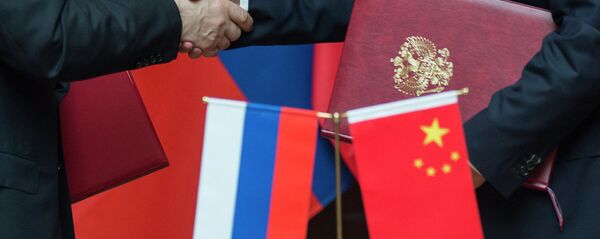“The SCO is really seen, in many ways, as sort of the vehicle by which Russia and the Chinese moved closer together,” Draitser tells Loud & Clear host Brian Becker. “This multilateral, international organization provides a potential platform, a potential forum for conflict resolution…”
“I think we have a new potential vehicle for peacemaking and prosperity-making,” he suggested.
The inclusion of India and Pakistan is the first expansion since the 2001 founding of the SCO. Taken with other recent economic unions, Russia, China, and many former Soviet republics are seeking to provide for their own opportunities, free of Western influence.
“I think there are a number of reasons why there is a potential for a lasting alliance here,” he says. “If you take these things together, what you see is one cohesive and coherent strategy for the creation of an antidote to the West.”
“That is to say,” he stated, “something that balances the unipolar hegemony of the United States and of NATO.”
Despite political conflicts between India and Pakistan, a new partnership between the two nations could work to prevent Washington’s ability to meddle in Asia.
“Can these seemingly disparate issues be, sort of, coalesced into one formal relationship? Ultimately, that’s what would benefit all of these countries, and, in my view, that’s what the United States fears more than anything else,” Draitser says.
Iran could be the next nation to join the SCO, a development that could have an even stronger impact on the image of US hegemony.
“If we see that, what that allows Iran to do is to access major investment that is non-Western. That is again what the United States and Europe fear,” he says.
“Will the West accept competing with Chinese oil companies and Russian companies in an Iranian market? That would be a devastating geopolitical blow for Washington, and you better believe they’re concerned about it and they’re watching it very closely.”



